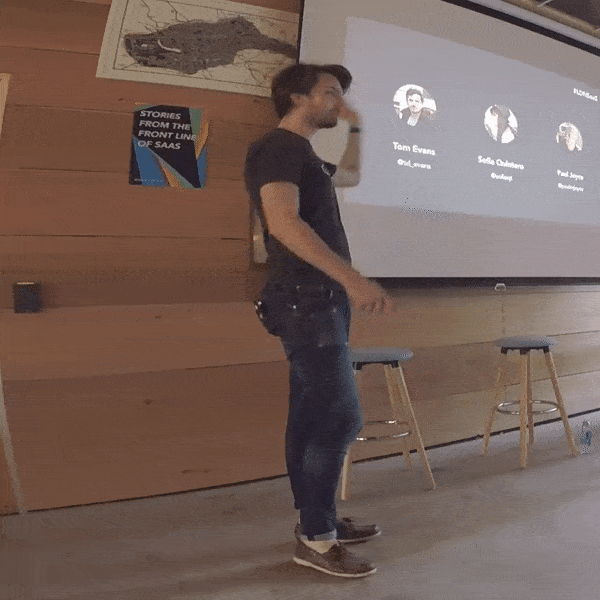
Earlier this year we started running events for the first time – focused on the SaaS community in London. We call the series “LDNSaaS” – featuring stories from the front line of running a SaaS business.
You could call this post “Stories from the front line of stories from the front line of SaaS”. This year we’ve had hundreds of attendees, twelve speakers, and four events – let’s dive in and share what we’ve learnt so far!
Why we run our events
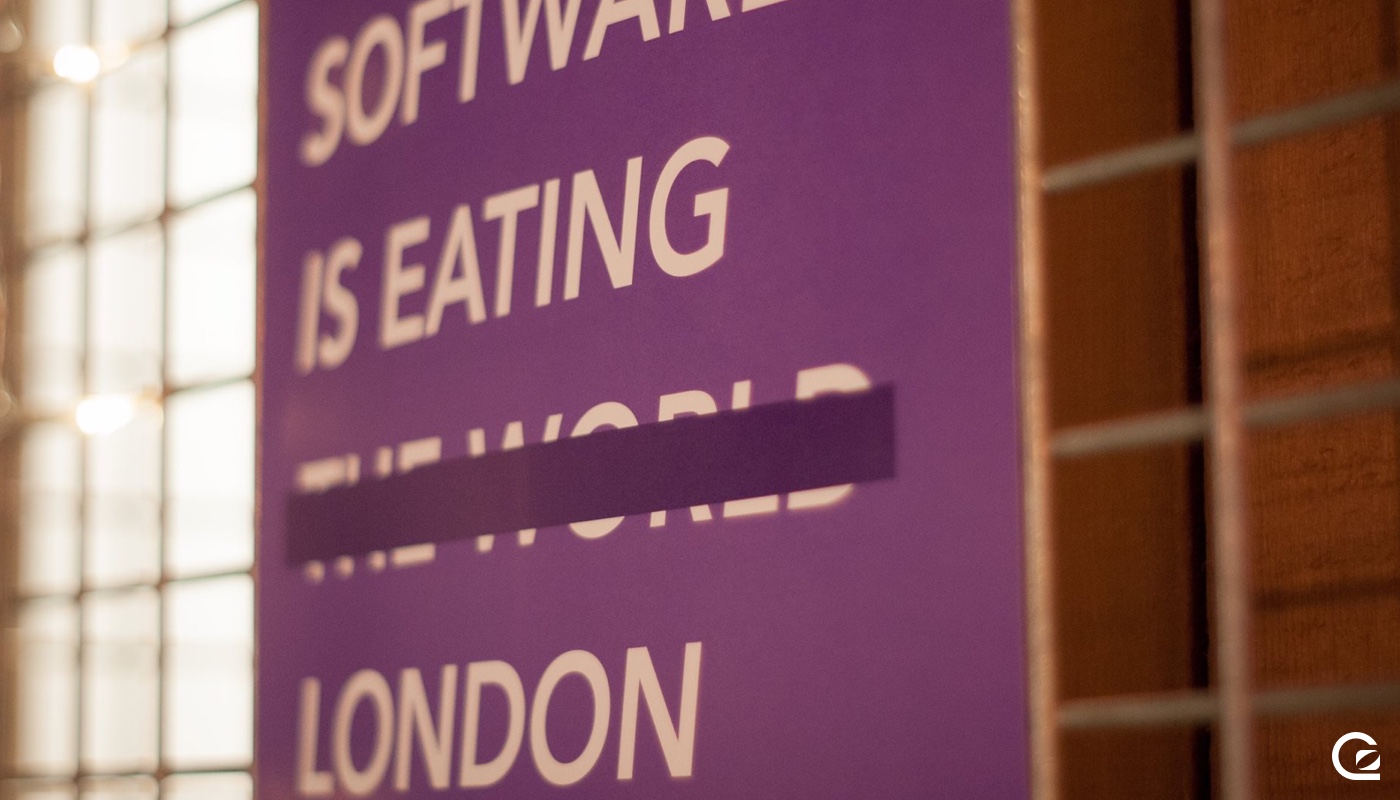
Following a trip to SaaStr at the end of last year, our CEO James came back inspired by the overwhelming sense of community from the number of SaaS-focused events and meetups in San Francisco.
While the SaaS and startup scene is arguably just as busy and exciting here in London, with loads of exciting products and companies popping up all the time, we felt that as a community we could definitely be doing more to highlight and celebrate each other’s successes here in the UK.
Every day we meet smart, hard working, creative people with inspirational stories who are passionate about tech and there is so much we can learn from each other. And that’s how the idea of LDNSaaS was born.
Over the course of this year, we have run four successful events so far and below are just a few lessons we’ve learnt along the way.
Ensure your event has a sense of purpose
While the idea of running GoSquared events had been brought up with surprising regularity at our quarterly days, this never went much further than the team unanimously agreeing that it would be great to do so.
And it was only this year that we understood why that might have been the case. The difference this time was that we knew we were doing this for a specific reason, we wanted to meet more of the London SaaS community to share knowledge, experience and stories and just to learn about all the cool companies and products being built.
Save the date
It might seem obvious, but it’s important to be realistic with the date for your event.
Can you really find speakers, a venue and get a big enough crowd in 2 weeks?
Finding the right venue, that venue being available, making sure the right people are available to speak takes time – it’s better to leave yourself with more time and use that to ramp up the marketing, than be scrambling to fill the room because you didn’t leave yourself enough time to promote the event across your network.
It’s also worth checking for other events around that time of year to make sure the date you chose doesn’t clash with another industry conference or meetup.
Get by with a little help from my friends
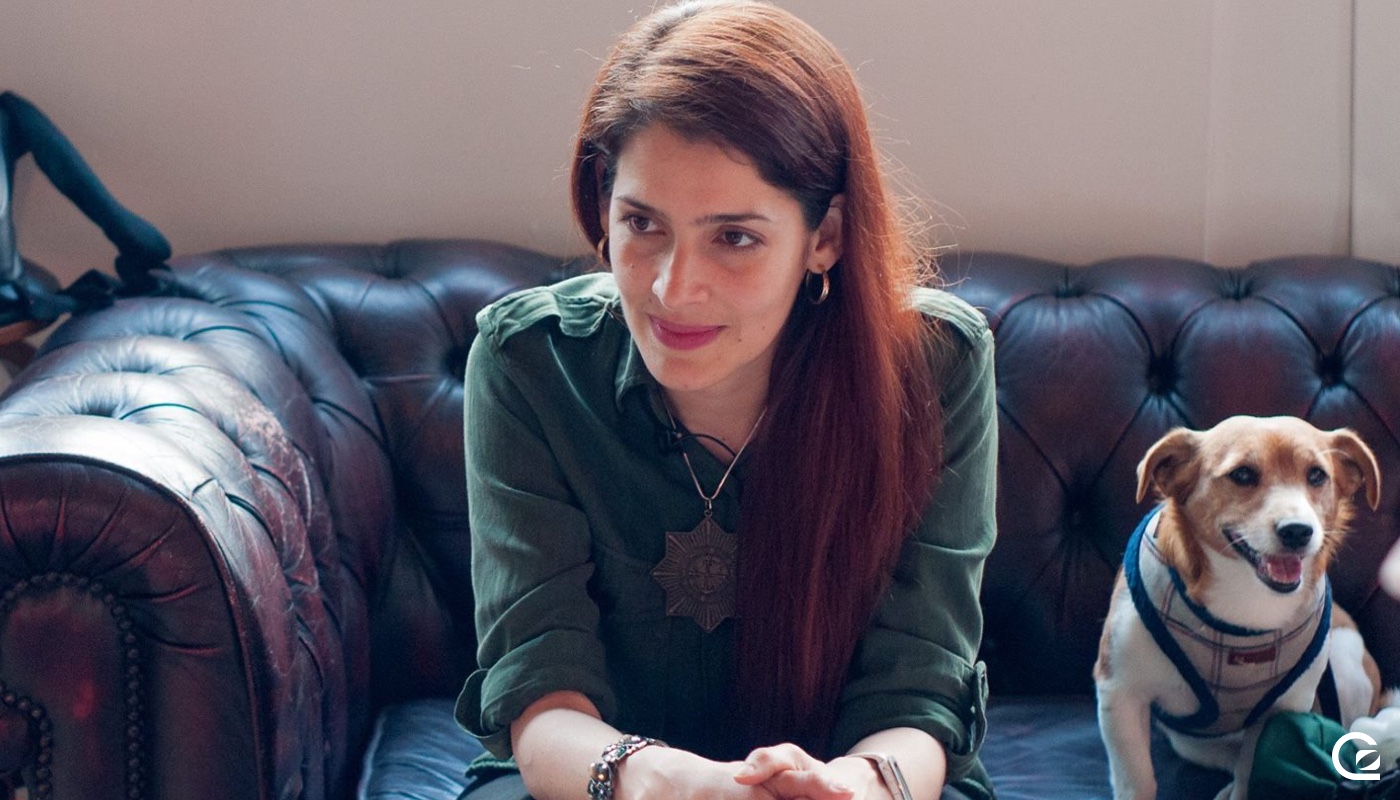
Once you have the venue and the date sorted, you can start thinking about the actual content.
The quality of speakers will be the focal point of your event – so you need to be sure that the content they share is up to scratch. Make sure you’ve inviting someone to speak for the right reasons, not just because they’re a friend or work for an exciting company; you don’t want someone using your event as a platform to deliver a blatant sales pitch of their product.
It’s always good to invite someone you know will be a quality speaker, whether you or your colleagues have seen them speak before – it’s always good to know what to expect so use your network wisely.
Your network are also an invaluable source of support when promoting the event – whether it’s offering a team discount to the company that work on the same floor or giving media and blogger discounts to the right people – you will always reap the benefits from the personal approach and friendly concessions.
The power of a plan
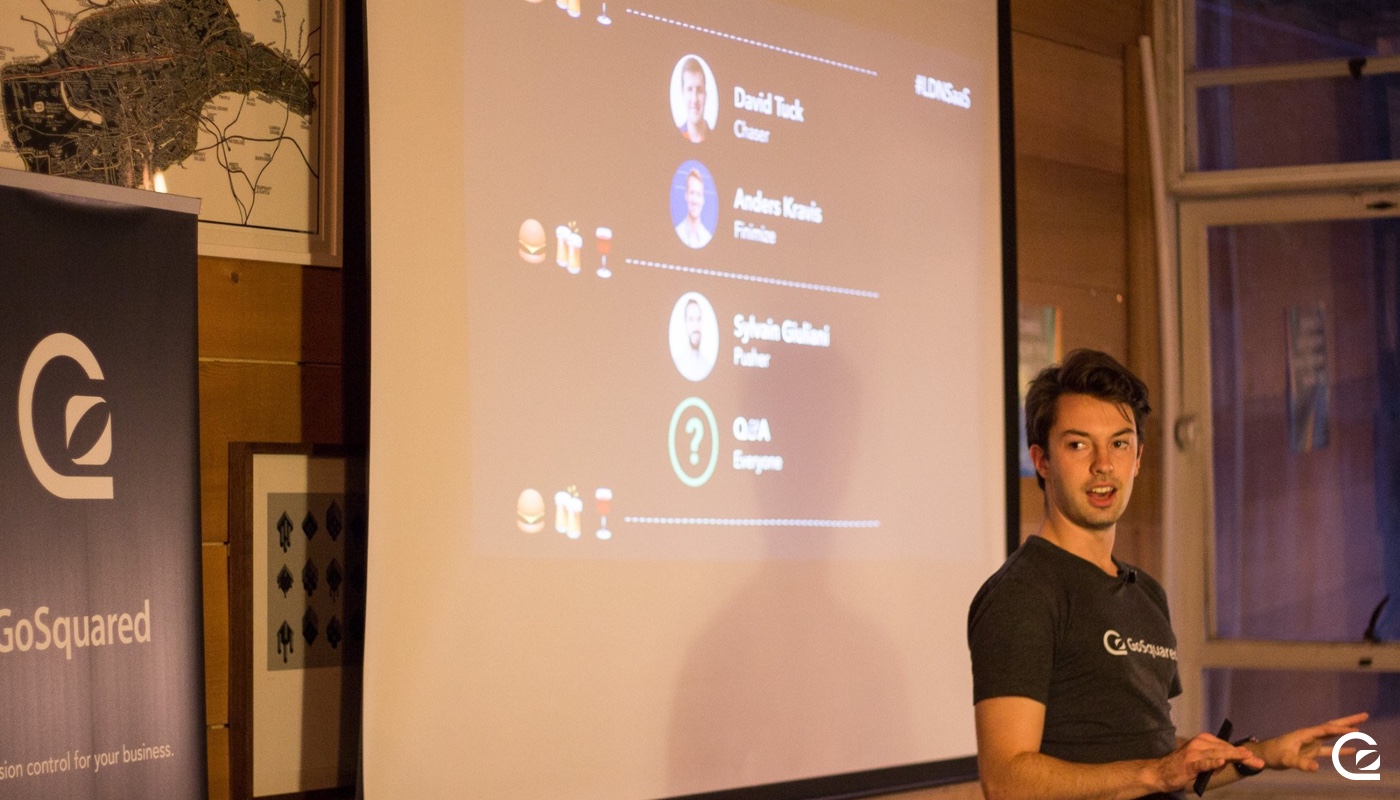
Yes, this might seem like another boring and obvious one, but don’t underestimate the power of a well thought through plan.
There are a lot of things to bear in mind when running an event, from a timeline of event milestones, marketing emails, speaker deadlines, printing, final presentation reel, AV equipment, food, drinks – it will make things a lot easier if you have a thorough plan, including a contingency plan for every possible scenario, the more meticulous the better.
Another good idea is to assign specific roles for every member of the team to ensure everyone is clear on what their role and involvement is in the run up and on the day.
To charge or not to charge
One of the big dilemmas that we encountered when planning the events is whether to make them free or to charge for tickets. We actually ended up trying both and there are pros and cons to each scenario.
Our first two events were free to attend and they generated a huge amount of interest. We had a lot of signups coming in every day in the run up to the event which expanded our newsletter database and consequently our general marketing outreach.
Unfortunately, though, people’s commitment to free events can be a bit unreliable, so we found it very hard to predict the actual turnout for the evening; which in turn made it difficult to plan food, drinks and space for the evening.
So for our third event in June we decided to experiment with charging a nominal fee for the event just to make sure that people commit to attending. While the number of signups went down considerably – almost by two thirds (which was terrifying), in reality the number of attendees actually increased.
We don’t charge to profit, but from a practical point of having reasonable expectations of the turnout on the night.
Give away some swag
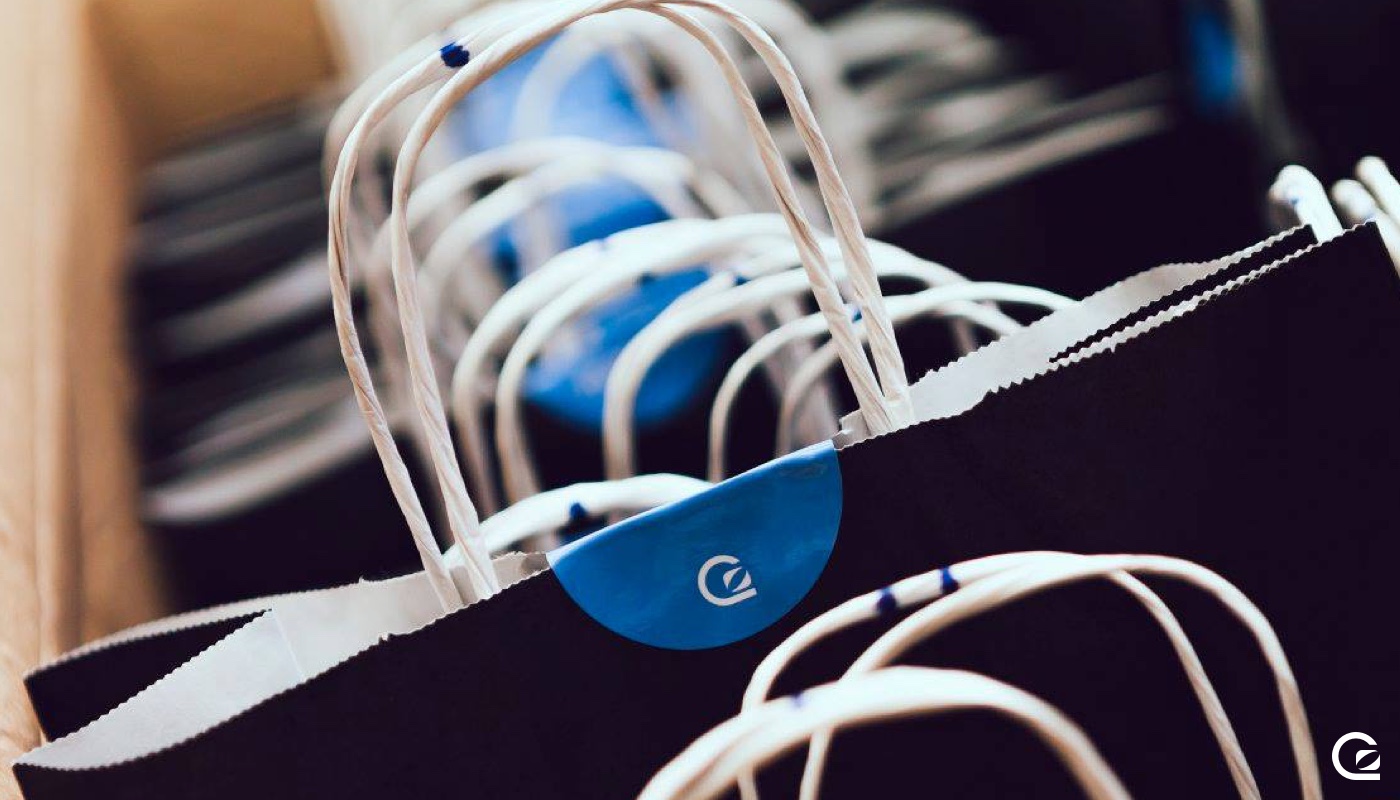
Who doesn’t love swag? We certainly love a t-shirt or ten!
We always encourage speakers to bring along t-shirts, stickers and any other branded or promotional material to give out to people on the night. It’s a great conversation starter that will make people remember your company and the event in general.
Giving out swag is also a great way to kick off Q&A sessions when no one wants to be the first person to ask the question – try offering the first three people who ask the question some small rewards.
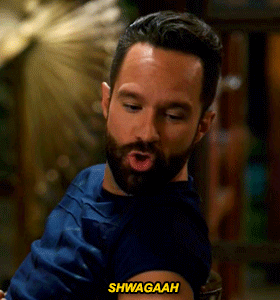
Have a social media strategy

“Social media strategy” can often sound like overkill, but it’s surprisingly easy to overlook the importance of having a plan for what is said on social media around your event.
Assign a social media owner for the evening
Do people know your company’s and the speakers’ Twitter handles? Are you posting photos of the event live online? Is anyone going to tweet out good quotes from the speakers?
Having someone dedicated to social media on the evening can be tremendously helpful. Others on the team are likely running around greeting people, or doing other roles to ensure the event can run smoothly.
Make sure there is a dedicated person on the team tweeting and taking photos throughout with snippets of content and quotes in order to encourage conversations online and create some buzz around the evening.
You never know who might tune in and end up booking a ticket to the next event!
Ensure you know the Twitter handles for your speakers
We always have a Q&A section at our events – when speakers say profound or amusing quotes, members of the audience are often keen to share what’s being said. Ask for the Twitter handles of your speakers ahead of time so the audience, and your team, can mention them wherever possible.
Decide on a #hashtag
We underestimated the importance of a hashtag at our first event, but it’s a surprisingly helpful way to collect all the comments and activity online around the event. Try to nail down a hashtag that’s short and easy to say, and plaster it everywhere you can!
The morning after the night before
Almost as important as it is to be super organised in the run up to the event, it’s equally important to have a follow-up plan.
Whether it’s a one-off event or part of a series, there is nothing more valuable to you as an organiser than feedback from your guests. What did they think of the speakers and content? What would they like to hear about next time? And, of course, did they enjoy the event overall?
From suggestions for future speakers to adjustments of timings on the evening to figuring out our best marketing channels for each event – we learnt and improved so much every time just from asking for honest opinions.
Be nice!
Don’t forget to be a good person and say thanks to everyone who helped make the event happen.
A message and a little something to the speakers who dedicated their time and effort, a thank you to the members of your team who made the evening happen, and of course a thank you to everyone who came along on the evening. It wouldn’t have happened without all of them!
Are you thinking about running an event? We’d love to hear about it! Let us know on Twitter!
